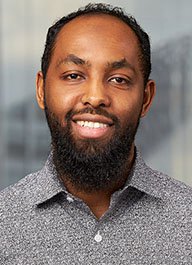
The COVID-19 pandemic has had devastating effects on the health and well-being of millions of people around the world. While the pandemic has touched almost everyone in developed and developing nations alike, it has disproportionately harmed the most vulnerable among us, including refugees and displaced people. Earlier this year, in partnership with ICONIQ Impact, ICONIQ Capital’s platform for collaborative philanthropy, we launched the $12 million Larsen Lam ICONIQ Impact Award, a global competition that seeks solutions to secure a brighter, more durable future for refugees. Though the world has changed since the competition launched, the proposed solutions are more timely than ever, given all the new challenges refugees face.
According to the United Nations, 122 refugee-hosting countries have reported local transmission of COVID-19, as of April 2020. The overwhelming majority of more than 70 million refugees and displaced people live in low- and middle-income countries that have poor health systems and infrastructure. Most refugees reside in crowded camps and high-density conditions where enforcing social distancing and other mitigating practices is virtually impossible. The result has been debilitating anguish, due to poor conditions becoming worse, as is the case in Yemen, for instance.
Already in the midst of the worst humanitarian crisis in the world, approximately 80 percent of Yemen’s population of more than 24 million people require humanitarian assistance, with half on the brink of starvation. Around two million children under five years old suffer from acute malnutrition. In addition, five million children—up from two million before the pandemic—are now out of school. As if things weren’t bad enough, a lack of funds has forced the United Nations to resort to half-rations for 8.5 million hungry Yemenis, according to the Brookings Institution.
As advanced economies continue to suffer from the pandemic’s effects, many countries are closing their borders and looking inward. Governments are grappling with the economic devastation of this unprecedented emergency and, as a result, funding for refugees is on the decline. Undoubtedly, the pandemic will only exacerbate the already protracted refugee crisis.
Responding to the needs of refugees is imperative, now more than ever. Efforts to provide much-needed relief and emergency support must continue. However, we must not lose sight of the global priority of enhancing refugee self-reliance as highlighted in the Global Compact on Refugees, an international framework for more predictable and equitable responsibility-sharing among host nations. Treating the refugee crisis through the lens of humanitarian assistance is no longer tenable; the world needs to achieve results that will transform the lives of refugees and host communities. In this spirit, the Larsen Lam ICONIQ Impact Award seeks solutions that will not only improve the well-being of refugees in the short-term, but also scale solutions that secure a durable future for refugees and improve their lives in the long-term.
In this moment of global reckoning and social upheaval, it is critical for philanthropy to be bold and daring. To achieve success, we believe organizations must think at scale and design solutions that tackle systemic challenges. We are proud to partner with ICONIQ Impact and donors like Lyna Lam and Chris Larsen who are willing to take risks and make big bets to achieve transformational, long-term change in the world. Donors interested in providing additional funding for finalists in this competition should contact Dana Rice, Vice President of Philanthropy, at ddrice@leverforchange.org.